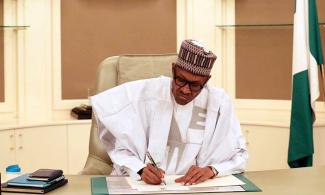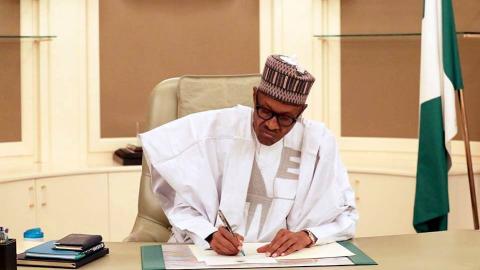
The National Bureau of Statistics, NBS, stated in its latest report released yesterday, that food price pressure continued into July as all major food sub-indexes increased, with food inflation in the country rising by 20.28 percent year-on-year (YoY) in July.
According to the NBS, this represents the highest year-on-year increase in food prices since 2009.
The report came on the day President Muhammadu Buhari charged the Finance Minister, Mrs. Kemi Adeosun,the Minister of Budget and National Planning, Senator Udo Udoma, and the Governor of Central Bank of Nigeria, CBN, Mr. Godwin Emefiele, to rev up efforts to quickly steer the economy out of recession, but expressed delight at the improvement the economy had made.
In the report, the NBS noted that the food index in July was up by 0.37% over 19.91% recorded in June. The report further stated that the rise in the food index was caused by an increase in prices of bread and cereals, meat, fish, oils and fats, coffee, tea and cocoa, potatoes, yam, and other tubers and vegetables.
“On a month-on-month basis, the food sub-index increased by 1.52 percent in July, down by 0.47 percent points from 1.99 percent recorded in June. The average annual rate of change of the food sub-index for the 12-month period ending in July 2017, over the previous 12-month average was 18.25 percent, 0.38 percent points from the average annual rate of change recorded in June (17.87) percent,” the report stated.
According to economic research by Vetiva, the last time food inflation was this high in the country, at 20.9 percent, was in July 2008 at the peak of the 2007/2008 global food crisis brought on by harsh droughts in food-producing regions, higher energy costs, and increased speculation on food commodity prices.
Meanwhile, the NBS also reported that annual inflation in Nigeria dropped by 0.05 percent in July, easing to 16.05 percent from 16.10 percent recorded in June, making it the sixth consecutive decline in the rate of headline year-on-year (YoY) inflation since January. The report stated: “On a month-on-month (MoM) basis, the headline index increased by 1.21 percent in July from 1.58 percent recorded in June. The urban index rose by 16.0 percent YoY in the same month, down by 0.11 percent point from 16.15 percent recorded in June, while the rural index increased by 16.08 percent in July from 16.01 percent in June.
“On a MoM basis, the urban index rose by 1.25 percent in July 2017, down by 0.35 percent point from 1.60 percent recorded in June, while the rural index rose by 1.18 percent in July 2017, down by 0.39 percent point from 1.57 percent in June.
‘’All items less farm produce’’ or Core sub-index, which excludes the prices of volatile agricultural produce eased by 0.30 percent during the month to 12.20 percent points from 12.50 percent recorded in June as all key divisions which contribute to the index increased.”
According to the report, the corresponding 12-month year-on-year average percentage change for the urban index increased from 18.69 percent in June to 18.43 percent in July, while the corresponding rural index also increased from 16.56 percent in June to 16.60 percent in July.
Reacting to the report, Mr. Johnson Chukwu, Managing Director/CEO, Cowry Asset Management Limited, said principally, the decline in inflation has remained marginal due to the increase in food inflation.
“During the harvest season, it is expected that food prices will come down, but that has not happened; prices of food have remained high contrary to expectations. Food inflation has remained recalcitrant, and that is why you see an only marginal decline (0.05 per cent) in food inflation,’’ he said.
He said that though the federal government was making efforts to improve agriculture in the country, the impact of the agriculture programs is yet to be felt.
He added that food inflation had also remained high due to weak transport infrastructure. According to him, the cost of transporting food items from rural to urban areas is still high.
Meanwhile, President Muhammadu Buhari, yesterday, expressed delight about the improving state of the economy but charged its managers to do more to get Nigerians out of recession as quickly as possible and bring them succor.
The President spoke as he met with the Minister of Finance, Mrs. Kemi Adeosun; the Minister of Budget and National Planning, Senator Udoma Udo Udoma, and Governor of Central Bank of Nigeria, CBN, Mr. Godwin Emefiele, at the Presidential Villa, Abuja to take briefings on the performance of the economy.
President Buhari’s thoughts were contained in a statement signed by his Special Adviser, Media, and Publicity, Mr. Femi Adesina. Adesina said Buhari reminded the ministers and CBN governor that reviving the economy was one of the major planks which the campaign of the All Progressives Congress, APC, his party, was built on. He said Buhari, while urging them “to keep at it” stated that the “main aim of government was to bring succor to Nigerians across all walks of life.”
The statement read: “For almost two hours, President Muhammadu Buhari, Monday (yesterday), received briefing from the Minister of Budget and National Planning, Senator Udoma Udo Udoma; the Minister of Finance, Mrs Kemi Adeosun, and Governor of the Central Bank of Nigeria (CBN), Mr Godwin Emefiele, after which a delighted President declared that he was pleased with the progress being made on different fronts."
“The ministers and CBN governor updated the President on the improving state of the economy, implementation of the 2017 budget, preparation for the 2018 budget, revenue strategies, combined cost reduction, and debt management. Also discussed, were monetary policy strategies and their economic impact among others."
“President Buhari, while reminding the ministers and CBN governor that reviving the economy was one of the major planks on which the campaign of his party, the All Progressives Congress, APC, was based, expressed gladness that things were looking up after two years of yeoman jobs," the statement read.
